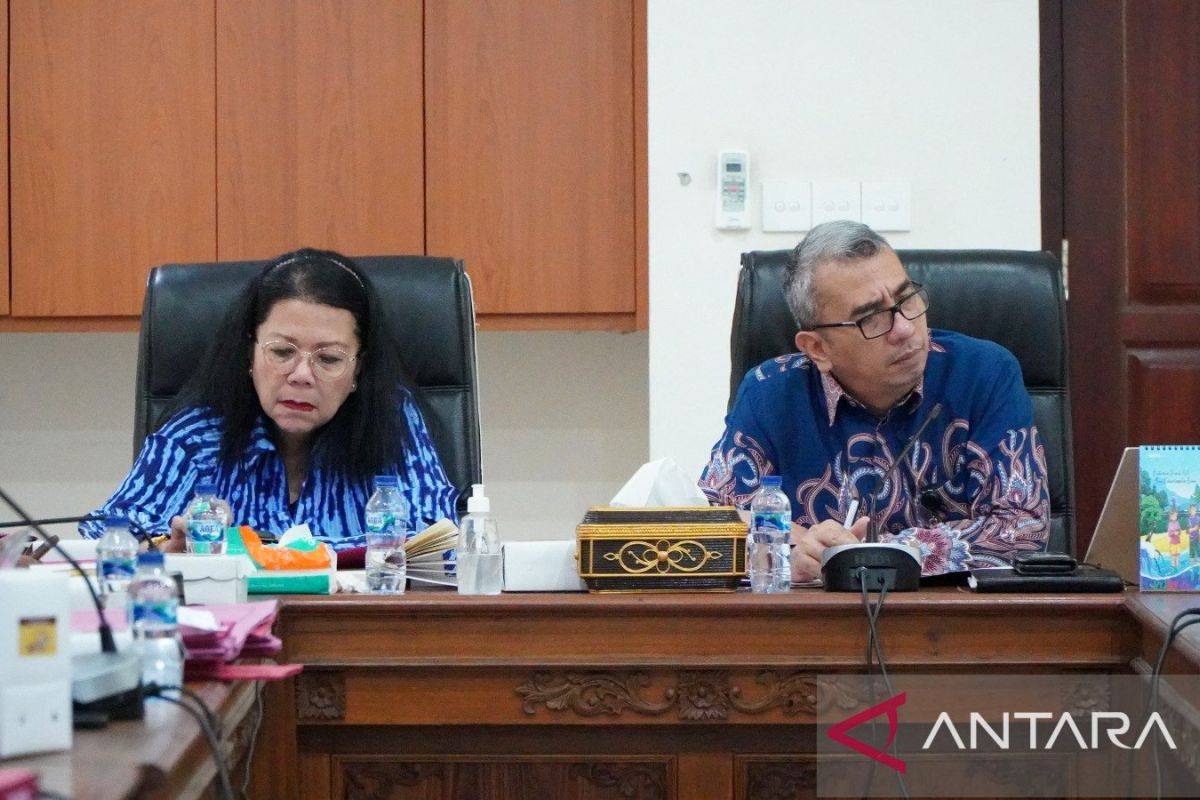
Indonesia’s Evolving Embrace: Navigating the Official Naturalization Landscape
Indonesia, an archipelago nation celebrated for its rich cultural tapestry, strategic geopolitical position, and burgeoning economy, has long maintained a nuanced approach to citizenship. While upholding the principle of single citizenship for adults, the country’s naturalization policies have become an increasingly dynamic tool for national development, talent acquisition, and strengthening international ties. Recent years have seen a significant uptick in official naturalization news, reflecting a strategic shift towards leveraging individual contributions for the collective good. This article delves into the intricate legal framework, the various pathways, notable cases, and the broader implications of Indonesia’s official naturalization process, painting a comprehensive picture of a nation thoughtfully shaping its future.
The Legal Foundation: Law No. 12/2006 on Citizenship
The cornerstone of Indonesia’s citizenship regulations is Law No. 12 of 2006 concerning Citizenship of the Republic of Indonesia. This comprehensive legislation outlines the conditions for acquiring, losing, and regaining Indonesian citizenship. A fundamental principle embedded within this law is the concept of single citizenship for adults, meaning that an individual who becomes an Indonesian citizen must generally renounce their previous nationality, with limited exceptions for children of mixed marriages who are given a choice upon reaching adulthood.
The law delineates several pathways to Indonesian citizenship, primarily:
- Application by individuals: This includes those who meet specific criteria such as having resided in Indonesia for a certain period, possessing a clean criminal record, and demonstrating a commitment to the Republic.
- Naturalization due to exceptional service or national interest: This category has garnered the most public attention in recent times, as it allows the President, with the approval of the House of Representatives (DPR), to grant citizenship to individuals whose contributions are deemed highly beneficial to the nation.
- Through marriage: Foreign nationals married to Indonesian citizens can apply for citizenship after a specific period of marriage and residence.
- Children of mixed marriages: Specific provisions exist for children born to one Indonesian parent and one foreign parent, allowing them to hold dual citizenship until they reach a certain age (typically 18 or 21, depending on the interpretation and subsequent regulations), at which point they must choose one.
- Reacquisition of citizenship: Former Indonesian citizens who lost their nationality can apply to regain it under certain conditions.
The entire process is meticulously managed by the Ministry of Law and Human Rights (Kemenkumham), which conducts thorough vetting, and for cases involving exceptional service, the final approval often rests with a Presidential Decree, following deliberations and approval from the DPR. This multi-layered approval process underscores the significance and strategic nature of granting citizenship, particularly through the "national interest" pathway.
Pathways to Becoming an Indonesian Citizen: A Deeper Dive
While all pathways are vital, the "exceptional service or national interest" route has dominated recent headlines, especially concerning the naturalization of athletes and other skilled individuals.
1. Exceptional Service or National Interest (Naturalisasi Istimewa)
This pathway is arguably the most publicized and politically significant. It allows Indonesia to strategically recruit talent from abroad to enhance its capabilities in various fields. The primary criteria include:
- Demonstrable Contribution: The individual must have made or be poised to make significant contributions to Indonesia in areas such as sports, arts, science, or technology.
- Loyalty and Commitment: A clear commitment to the Republic of Indonesia, its ideology (Pancasila), and its constitution (UUD 1945) is paramount.
- No Criminal Record: Applicants must have a clean legal history.
- Renunciation of Previous Citizenship: This is a critical step, signifying full allegiance to Indonesia.
The most prominent examples of this pathway in recent years have been in the realm of sports, particularly football. The Indonesian Football Association (PSSI) has actively pursued the naturalization of players of Indonesian descent or those with a strong connection to the country, aiming to elevate the national team’s performance on the international stage. Players like Elkan Baggott, Jordi Amat, Sandy Walsh, Ivar Jenner, Rafael Struick, and Shayne Pattynama, among others, have successfully navigated this process, bringing with them international experience and skill sets that are believed to significantly bolster the national squad. This trend is not limited to football; other sports like basketball have also seen naturalized players, reflecting a broader strategy to improve national sporting achievements.
Beyond sports, this pathway is theoretically open to other fields where foreign expertise can provide a significant boost to national development, although these cases tend to be less publicly reported.
2. Through Marriage (Pernikahan Campuran)
This is a common route for foreign nationals who have married Indonesian citizens. To be eligible, the applicant must have been legally married to an Indonesian citizen for at least two years and have resided in Indonesia for a cumulative period of at least five years, or continuously for two years. The process involves demonstrating the authenticity of the marriage and commitment to residing in Indonesia. Upon approval, the foreign spouse must generally renounce their original citizenship. This pathway reflects Indonesia’s recognition of family unity while upholding its principle of single nationality.
3. Children of Mixed Marriages
Law No. 12/2006 introduced provisions for children born to an Indonesian parent and a foreign parent to hold dual citizenship until they turn 18 or 21 (depending on whether they are married before 21). This "limited dual citizenship" provision was a significant step, aiming to prevent statelessness and offer flexibility to families. Upon reaching the specified age, these individuals are required to choose one citizenship, reflecting the adult single citizenship principle. This provision has been particularly important for Indonesian diaspora families abroad.
4. Reacquisition of Citizenship
Former Indonesian citizens who lost their nationality (e.g., due to acquiring foreign citizenship before Law 12/2006, or by choice) can apply to reacquire it. This pathway typically requires demonstrating a strong desire to return to Indonesia and contribute to the nation.
Recent Trends and Notable Cases: A Surge in Strategic Naturalization
The last decade, and especially the past few years, have witnessed a notable surge in naturalization cases, predominantly driven by the "exceptional service" clause. The focus on football players has been particularly striking, transforming the national team’s composition and performance.
The PSSI, under new leadership, has aggressively pursued the naturalization of players with Indonesian heritage playing in European leagues. This strategy is rooted in the belief that incorporating players with higher-level professional experience will rapidly improve the quality and competitiveness of the Indonesian national team, particularly for World Cup and Asian Cup qualifiers. The presence of players like Jordi Amat (who played in La Liga and the Premier League) and Sandy Walsh (a consistent performer in the Belgian league) has not only elevated the team’s tactical prowess but also boosted national pride and fan engagement. The process involves extensive background checks, legal procedures, and often a direct appeal from sports federations to the government, culminating in a Presidential Decree and a formal oath-taking ceremony.
Beyond the sporting arena, there’s a growing discussion about leveraging naturalization to attract highly skilled professionals, entrepreneurs, and scientists from the Indonesian diaspora or foreign experts whose contributions could significantly boost critical sectors like technology, healthcare, or renewable energy. While not as publicly visible as sports naturalizations, these discussions signal a broader, more strategic view of citizenship as a tool for national development.
The Rationale and Impact: Benefits and Debates
The strategic use of naturalization brings forth a myriad of benefits and, concurrently, sparks important public debates.
Benefits for Indonesia:
- Talent Infusion: Directly injects high-level skills and experience into critical sectors, particularly sports, where immediate impact is sought.
- Enhanced Performance: Elevates the competitiveness of national teams and potentially other sectors on the international stage.
- National Pride: Successful naturalization efforts, especially in popular sports, generate immense national pride and unity.
- Economic Impact: Improved sporting performance can lead to increased tourism, merchandise sales, and investment in sports infrastructure. In other sectors, skilled naturalized citizens can contribute to innovation and economic growth.
- Soft Power: Showcases Indonesia as an open, welcoming nation willing to embrace global talent for mutual benefit.
Challenges and Debates:
- "Instant" Citizenship: Some critics argue that naturalization, especially for athletes, can be perceived as an "instant" path to citizenship, potentially undermining the traditional, longer routes for others.
- Authenticity of Commitment: Questions are sometimes raised about the long-term commitment and loyalty of naturalized citizens, particularly if their primary motivation is professional opportunity.
- Impact on Local Talent: Concerns exist that an over-reliance on naturalized talent might stifle the development of local, homegrown talent.
- Transparency and Fairness: Ensuring that the naturalization process is transparent, fair, and not subject to undue influence is crucial to maintaining public trust.
- Integration: The challenge of truly integrating naturalized citizens into Indonesian society, beyond their professional roles, remains.
Despite these debates, the government’s stance is clear: naturalization, particularly for exceptional service, is a strategic investment in the nation’s future. The process is rigorous, requiring not just skill but also a demonstrated commitment to Indonesia.
The Official Process: From Application to Oath
The official naturalization process in Indonesia, particularly for "exceptional service," is a multi-stage endeavor involving several government bodies.
- Proposal: Initiated by relevant ministries or state institutions (e.g., Ministry of Youth and Sports for athletes, or relevant ministries for other fields).
- Vetting by Kemenkumham: The Ministry of Law and Human Rights conducts a thorough background check, verifying legal status, personal history, and adherence to legal requirements.
- Coordination with Other Agencies: Consultation with agencies like the State Intelligence Agency (BIN) and the National Police is common to ensure national security interests are upheld.
- DPR Approval: For "exceptional service" cases, the proposal must be approved by the House of Representatives (DPR) in a plenary session. This step ensures parliamentary oversight and public accountability.
- Presidential Decree: Following DPR approval, the President issues a Presidential Decree (Keppres) formalizing the grant of citizenship.
- Oath-Taking Ceremony: The final and most symbolic step is the oath-taking ceremony, typically administered by Kemenkumham officials. During this ceremony, the individual pledges allegiance to Indonesia, Pancasila, and the 1945 Constitution, and formally renounces their previous citizenship.
- Issuance of Identity Documents: After the oath, the individual is issued an Indonesian ID card (KTP) and passport, officially becoming an Indonesian citizen with all associated rights and responsibilities.
This comprehensive and layered process underscores the gravity and meticulousness with which Indonesia approaches the granting of its citizenship.
Conclusion: A Dynamic Landscape of Identity and Development
Indonesia’s official naturalization news reflects a dynamic and evolving landscape where national identity, talent acquisition, and strategic development intersect. While firmly rooted in the principle of single citizenship for adults, the nation has increasingly recognized the value of welcoming individuals whose exceptional contributions can propel it forward. The visible naturalization of athletes has brought this process into the public eye, highlighting both the immense potential benefits and the ongoing debates surrounding fairness, integration, and national character.
As Indonesia continues its journey of growth and development, its naturalization policies will likely remain a critical instrument. The meticulous legal framework, coupled with a strategic vision for the future, ensures that the embrace of new citizens is not merely a formality but a deliberate act aimed at enriching the nation’s human capital, fostering national pride, and strengthening its position on the global stage. The official naturalization process in Indonesia is, in essence, a testament to a nation’s ability to adapt, strategically recruit, and integrate global talent while steadfastly upholding its core values and identity.



